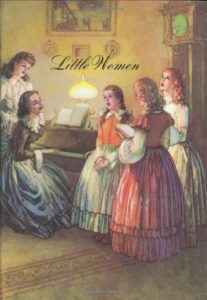Awards Introduction: 6 Literary Prizes and a Few Winning Books We Love
There are so many literary prizes that keeping them all straight becomes a problem. Who awards which ones, and what are the entry and judgment criteria? Here are descriptions of a few—Nobel Prize, National Book Award, Costa Award, Pulitzer Prize, Man Booker, Women’s Prize for Fiction (formerly known as the Orange Prize)—along with descriptions of some recent winners of each.
VAL MCDERMID DREAMS OF A LOST JOSEPHINE TEY MYSTERY
Val McDermid is one of my favorite contemporary mystery writers. Here McDermid explains why she, along with a lot of other writers of crime fiction, think so highly of novelist Josephine Tey, whom McDermid describes as “a bridge between the classic detective stories of the Golden Age and contemporary crime fiction.”
“Questions of identity permeate her novels,” writes McDermid. Also, “Tey opened up the possibility of unconventional secrets” such as homosexual desire, cross-dressing, and sexual perversion: “a dfferent set of psychological motivations” than had been seen in Golden Age detective fiction:
Without Tey cracking open the door, I don’t know how easy it would have been for writers such as Patricia Highsmith and Ruth Rendell to have begun their own explorations of the darker side of human identity and sexuality. I know myself that reading Tey for the first time was like taking a lungful of pure air. I realised that crime fiction could be so much more than the bloodless entertainment I’d been enjoying up to that point. And her work helped me to understand that I could write books that dealt with serious aspects of human behaviour within the confines of genre fiction.
Science Says This Is the Simplest Way to Remember More of What You Read
Here’s yet another plug for the process of slow reading, which includes “giv[ing] yourself a little time to reflect on what you just read.” And such reflection need not involve a long, complicated process. The writer of this article includes a four-step summarization and reflection process and looks at some of the psychological evidence that supports its use.
Read on!
How Feminist Dystopian Fiction Is Channeling Women’s Anger and Anxiety
“The Water Cure,” which comes out in the United States in January and was longlisted for the Man Booker Prize, joins a growing wave of female-centered dystopian fiction, futuristic works that raise uncomfortable questions about pervasive gender inequality, misogyny and violence against women, the erosion of reproductive rights and the extreme consequences of institutionalized sexism.
Alexandra Alter looks at the history of the dystopian fiction that women have been writing for decades and that continues into the political climate of the present.
YES, LITTLE WOMEN IS A FEMINIST NOVEL — AND HERE’S WHY
 Kathleen Keenan writes:
Kathleen Keenan writes:
I read Jo’s marriage to Professor Bhaer as a feminist commentary on the choices available to women at that time. To be taken seriously as a writer—something she desperately
wants—Jo is forced to face the sexist literary standards of her day. And as a character in a 19th-century novel, Jo is basically doomed to head to the altar, but Alcott makes her choice as subversive as she can.
She concludes:
Little Women argues that women’s lives are worthy of examination. Women’s stories deserve to be heard. Even when beloved female characters make disappointing choices, writing and sharing their stories is a feminist act.
© 2018 by Mary Daniels Brown

